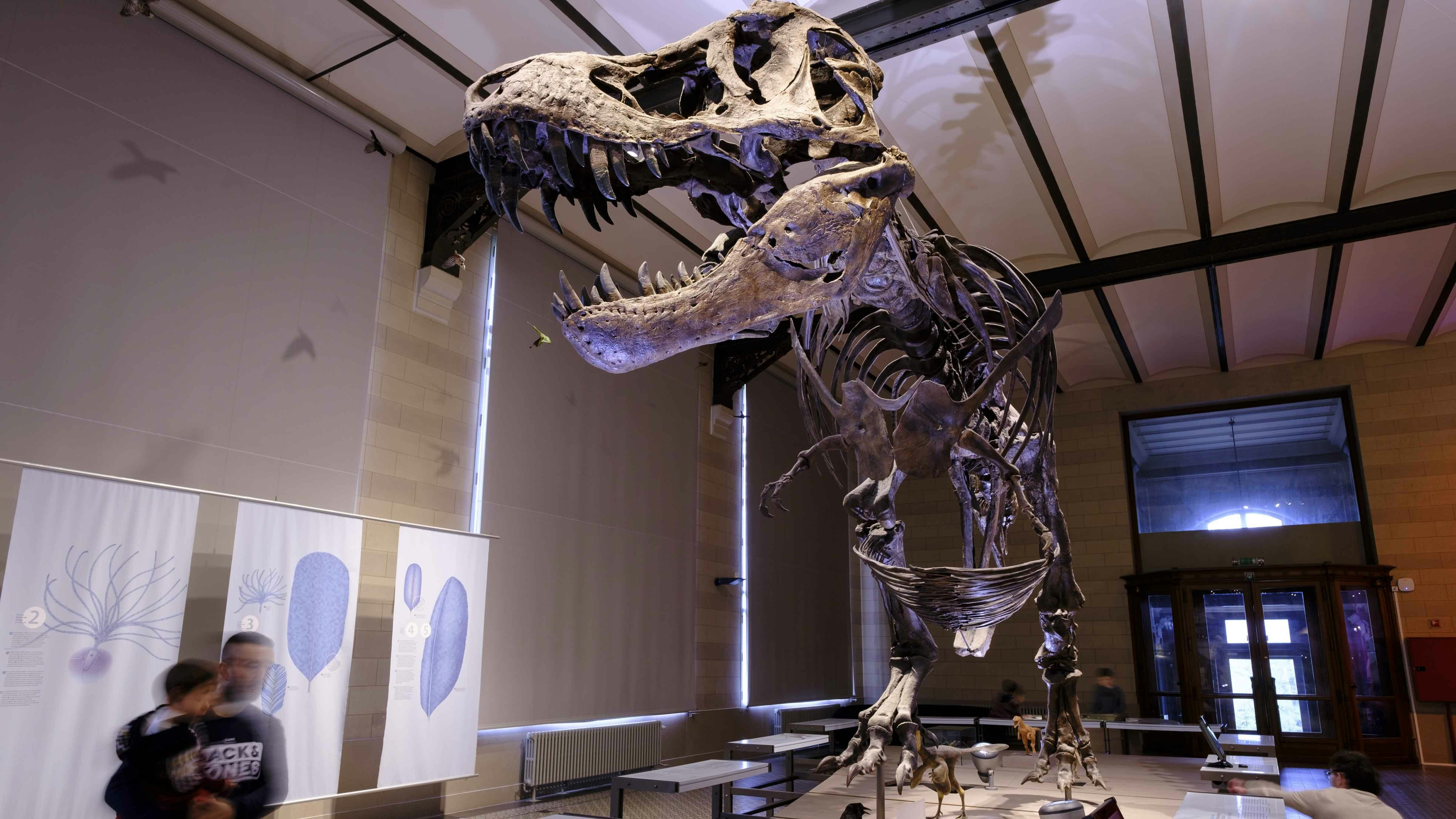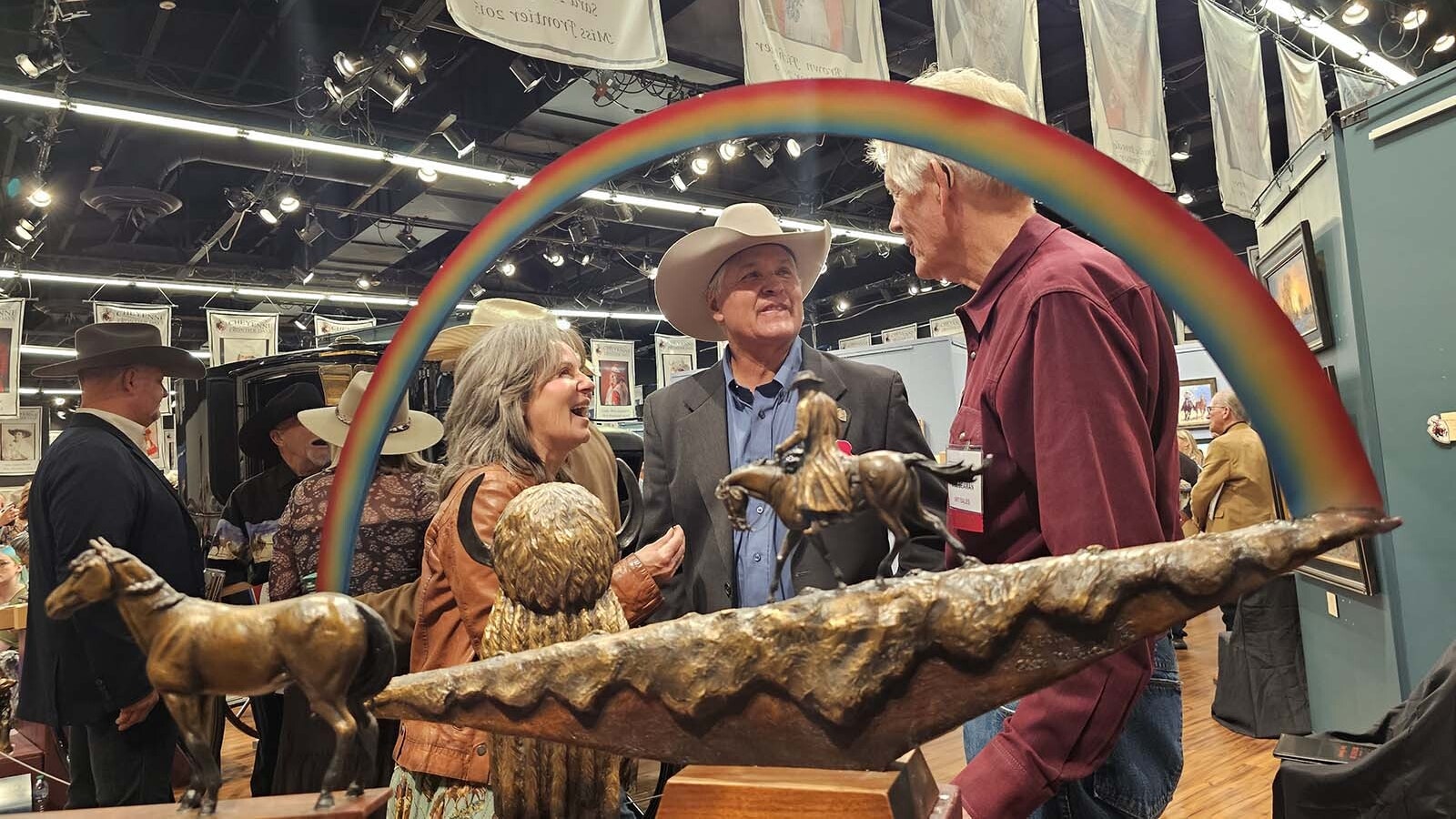A complete Tyrannosaurus skeleton, with most of its parts unearthed in Wyoming, sold at an auction in Zurich on Tuesday for a bargain basement price of only $5.3 million.
The 12.8-foot-high, 38.1-foot-long skeleton named “Trinity,” which was put together from the bones of three T. rex fossils near the borders of Wyoming and Montana, was expected to go for more than $8 million.
Experts say the winning bidder, a private European collector, probably got the discounted price because it was Frankensteined together.
“It could be that it was a composite — that could be why the purists didn’t go for it,” Karl Green, marketing director for the Koller auction house, told the Associated Press.
Saying that, it is considered by paleontologists to be one of the “better” T. rex specimens in existence.
Dr. Dr Hans-Jacob Siber of The Aathal Dinosaur Museum in Switzerland told the BBC that most skeletons aren’t complete and are made up of casts and replacements, but more than half of Trinity’s 293 bones are real.
"There are only 20 or 30 good T. rex skeletons in the world, and this is one of the bigger and better ones,” he said.
Other T. Rex skeletons found in the same formation have sold for millions at other sales. “Sue” was sold for $8.4 million in 1997, and “Stan” was sold for a world-record price of $31.8 million at Christie’s in 2020.
Trinity was sold to a private European collector and it is unknown whether it will go on public display.
Dr. Scott Persons, a research paleontologist at the Paleon Museum in Glenrock, told Cowboy State Daily in March that it would be better for society if Trinity would be sold to a museum rather than a private owner.
“There’s no question that we’d be better off if the skeleton winds up going into a public institution, where it can both be appreciated by anyone that comes to visit and where it can also be studied by any qualified researcher,” he said.
A dinosaur professor at Edinburgh University concurred.
"Most museums can't compete with the deep pockets of the oligarchs and the super-rich," Prof. Steve Brusatte told the BBC.
"What worries me is that these very rare dinosaur skeletons, which are scientifically very valuable and are important for education and public engagement disappear into the vaults of private collectors which means that they are not available for public display,” he said.





